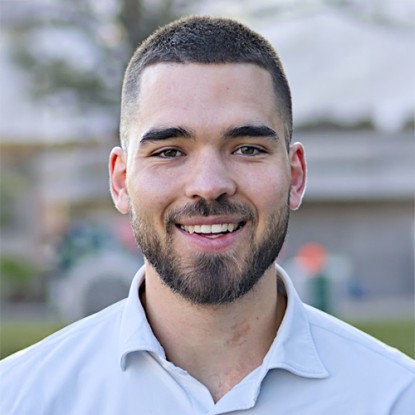Jasper Müller M.Sc.
EnEff:Stadt Campus Lichtwiese II
Contact
mueller@ttd.tu-...
work +49 6151 16-22691
Work
L2|06 216
Peter-Grünberg-Str. 10
64287
Darmstadt
| Since 2025 | Researcher at the Institute for Technical Thermodynamics. TU Darmstadt |
| 2024–2025 | Technical advisor at the Federal Office for Economic Affairs and Export Control, federal funding for efficient district heating networks |
| 2024 | Master's thesis “Quantification of environmental costs in the context of energy efficiency measures” |
| 2021–2024 | M.Sc. Energy Science and Engineering, TU Darmstadt |
| 2017–2021 | B.Sc. Business Administration and Engineering: Mechanical Engineering, TU Darmstadt |
In the “EnEff:Stadt: Campus Lichtwiese” research project, an interdisciplinary team of architects, electrical and mechanical engineers and the energy management department of Technische Universität Darmstadt is working on implementing the “Energiewende” (energy transition) at the district level. The aim is to develop an optimized overall energy concept with full sector coupling of electricity, heating, cooling and buildings, which should enable the TU to meet its reduction targets for CO2 emissions and energy requirements at optimal cost.
The Department of Technical Thermodynamics (TTD) is responsible for the consideration of thermal energy supply. Here, the aspects of energy generation, thermal energy storage and thermal networks as well as the interfaces between electricity and heating or cooling are examined. For this purpose, models are developed for setting up the thermal energy supply on campus. Optimization measures are derived from these models by comparing different future scenarios with regard to CO2 emissions and costs.
The first phase of the project until 2018 focused in particular on measures to increase efficiency, such as lowering grid temperatures and intelligent use of thermal storage.
In the second project phase, the focus was increasingly on the use of renewable heat sources such as geothermal and solar thermal energy to close the existing reduction gap.
In phase III, architects, electrical and mechanical engineers are investigating how energy requirements and CO2 emissions can be reduced in the complex energy system of the campus. Moreover, exemplary construction measures are being implemented as pilot projects.




